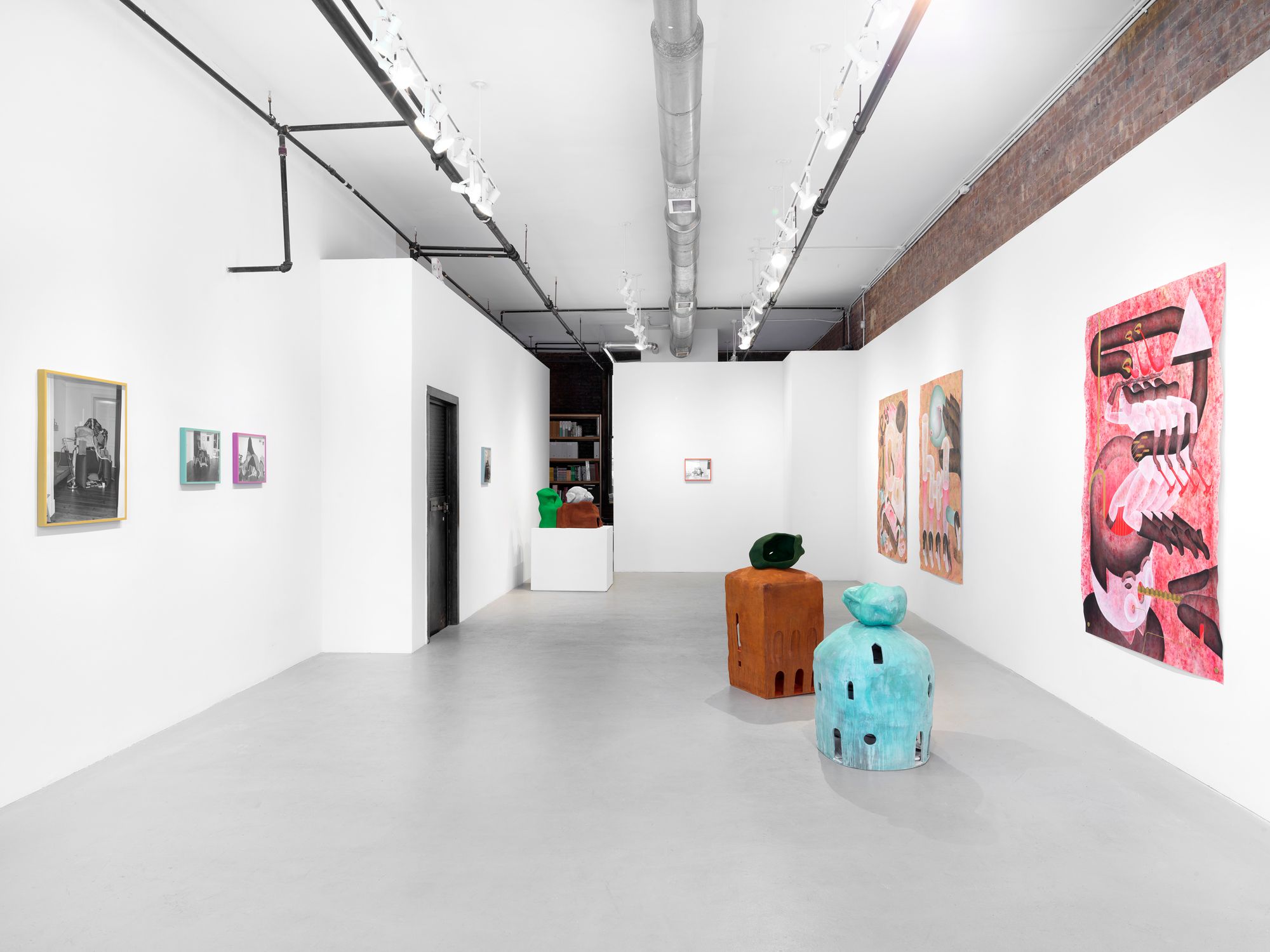It is with great pleasure that Simone Subal Gallery presents a group exhibition featuring works by Jen Liu, Joanna Piotrowska, and Jesse Wine. All three artists question the stability of established political or biological systems, blur domestic and bodily architectures, and re-envision new forms of agency. They believe that the manner in which bodies interact and create within manmade space is inherently political—whether an individual manipulates personal belongings in their own living space, or a collective workforce executes a preordained system of industrial production, or an anthropomorphic object poetically merges with architectural elements. These various actions question the limits of our collective and individual subjectivity, and posit the possibility of rethinking or revolting against overdetermined societies.
Jen Liu’s paintings and video examine contemporary forms of “empowerment” that are invariably linked to structures of manipulation and economic control. In the paintings on view, large feminine fingers manipulate a variety of objects. The images allude to ideas of “soft power,” “charm offensives,” and even the tutorials for the multi-touch gestures on Mac computers. The images suggest that whatever power an individual might feel when using consumer-grade technology is dwarfed in comparison to the implied societal power mechanisms far greater and insidious than any individual. This illusion of agency continues in Liu’s video The Pink Detachment I, which reimagines the ballet The Red Detachment of Women – one of the Eight Model Plays during Mao Zedong’s Cultural Revolution in China.
Johanna Piotrowski’s black and white silver gelatin photographs begin with a fundamental idea. The body and its gestures have been prominent themes in her work, and in many ways her images capture a sort of performance—they create the sense of an act frozen in time, a move that intensifies her searingly visceral photos. Her series, Shelter, shot on location in Lisbon, Rio de Janeiro, and Warsaw, depict a single person taking cover inside a tent the subject constructed out of sheets, curtains, and pieces of furniture. All the photos are taken indoors, producing a doubling. The haphazard structures are oddly sculptural and precarious. The individuals and their poses appear vulnerable and out of sync with their surroundings—a visual and poetic rendering of the greater feeling of anxiety and discontinuity plaguing our current moment.
Jesse Wine’s latest ceramic sculptures take sleep as an ultimate state of vulnerability. Most pieces show a reclining head resting atop a surreal architectural structure. The head, though, is more of a mask, as Wine leaves the back of the head exposed. The hallowed head is made into a place of its own, in one instance, to store loose change, just as the base of a ceramic building is strewn with junk mail sent to Wine’s Brooklyn studio. Much of this work deals with the various ways consumerism and societal pressure govern all aspects of life. And yet sleep, for the moment at least, escapes these encroachments; it is a respite—quite literally—from the onslaught of everyday life. Wine’s delicately constructed works take the seeming vulnerability of the sleeper and imbue it with somnolent agency, playing with the way, for example, those asleep often directly affect the actions of those awake, the way dreams often beget possibilities.
















































































































